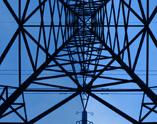Threats to the Utility Compact

Microgrids may be a dagger aimed at the heart of
utilities and their large, centralized power grids.
If consumers, business and industry abandon the main
grid in favor of microgrids, it will threaten the
utility compact and also have serious societal and
national security implications.
The utility compact has been under attack for
decades. It was created to ensure that a reliable
affordable electric utility infrastructure would
exist to serve the entire community. A utility was
granted a monopoly in a region, and in return it
agreed to deliver affordable, reliable electricity
service.
That worked for a century, but in recent years
deregulation, cogeneration, wind turbines and solar
panels have gradually eaten away at the compact. It
is becoming common for individuals and businesses to
produce some of the power they use.
As microgrids become more reliable, it will be
possible for large businesses and wealthy
individuals to cut the cord with the grid. The
tipping point will likely come when largescale power
storage systems become available. Not only
will wealthy consumers isolate themselves from the
grid's power, they may also isolate themselves from
the demands our society places on electric
utilities.
They can then avoid systemwide outages. They
may be insulated from aging infrastructure that may
limit reliability and push up costs to support
upgrades. And they can embrace new technology while
bureaucratic utilities and their regulators continue
to debate what is right and what is wrong and who
gets what first.
It is easy to understand why the wealthy would leave
the grid. However, the rest of us won't have that
option. If the grid eventually serves only the vast
majority of us who are not wealthy, our cost burdens
will increase. Yes, the utilities will deliver less
electricity initially, but as the infrastructure
ages there will be ewer of us to pick up the
operating costs.
The downside for private grid owners will come 25 or
more years from now. As the new microgrids age, they
will need upgrades and maintenance like any other
grid, and some will fall into disrepair. The
public grid will then have to resupply customers
served by ill-performing microgrids or may even have
to step in to repair them. The wisest option might
be for electric utilities that are already good at
performing maintenance to offer their services to
the new microgrid owners.
Going it alone is very American - as is rebelling
against large institutions like utilities.
However, we cannot overlook that the grid was built
to serve everyone and huge costs have been incurred
to accomplish this. For example, how will utilities
pay off those massive bonds they have issued?
Individuals should have the right to leave the grid,
but that should not excuse them from the costs that
were incurred on their behalf.
A healthy grid supporting the entire society is
fundamental to our nation's security. Throughout the
country there are military facilities and government
buildings that serve all of our needs. We cannot
allow weakened utilities to jeopardize these
institutions.
A strong grid was a key factor in the United States
becoming a dominant world power and a haven for
technical innovation. Unfortunately, the converse
may also be true. How strong will the United States
be if the electric grid is financially weakened?
Though state regulators control how tariffs and most
rules are written, the federal government has
ultimate control over the electric power industry.
To keep the grids financially healthy, the U.S.
Federal Energy Regulatory Commission and the
Department of Energy must establish guidelines for a
business or individual to exit the grid.
Copyright © 1996-2013 by CyberTech, Inc. All rights reserved.
To subscribe or visit go to: http://www.energycentral.com
To subscribe or visit go to: http://www.energybiz.com
http://www.energybiz.com/article/13/12/threats-utility-compact